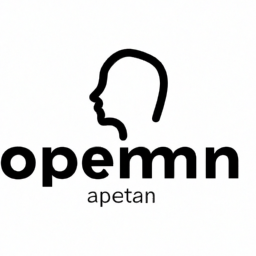OpenAI in Crisis: Power Struggles, Deception, and the Fight for its Future
Introduction:

OpenAI, the highly acclaimed artificial intelligence research lab, has recently found itself embroiled in a tumultuous leadership crisis. The departure of CEO Sam Altman and the subsequent disagreements between the board and Altman have sparked speculation and debate within the AI community. While the details remain murky, it is clear that power struggles, strategic missteps, and questionable alliances have cast a shadow over OpenAI’s reputation and mission.
Power Struggles and Deception:
One prevailing theory is that Altman, who initially transformed OpenAI into a prominent startup, seized control and propelled it towards a more profit-driven agenda. The sudden influx of funds from questionable sources, including the Saudis, has raised eyebrows about the intentions behind OpenAI’s commercialization drive. Critics argue that this shift in focus diverges from OpenAI’s foundational goal of ensuring artificial general intelligence (AGI) remains out of the hands of powerful individuals.
Inexperienced Board and Ineffective Communication:
Another key issue is the perceived incompetence and lack of communication skills displayed by OpenAI’s board. With an inexperienced board struggling to address internal conflicts, the decision-making process has become chaotic. The board’s failure to effectively communicate its decisions and reasons behind Altman’s departure has only deepened the intrigue and confusion surrounding the situation. As a result, questions linger about the board’s ability to navigate the challenges of running a groundbreaking organization like OpenAI.
Brand Value at Stake:
The decision-making process that led to Altman’s departure has irrevocably damaged OpenAI’s brand value and good will. OpenAI was built on Altman’s visionary reputation and charisma, which attracted a cult-like following. However, the sudden shift in leadership and the subsequent fallout have left many questioning the organization’s direction and credibility. It remains to be seen whether OpenAI can recover from the reputational damage and regain the trust of its followers.
The Need for Stronger Leadership:
While the exact motivations behind Altman’s actions and the board’s response remain speculative, it is evident that diverse influences and ego clashes have derailed OpenAI’s mission. The organization requires new leadership that can effectively address internal conflicts, restore transparency, and steer OpenAI back towards its core objectives. Without a competent board that can manage OpenAI’s trajectory, the organization is at risk of losing its relevance and impact within the AI community.
Conclusion:
The OpenAI leadership crisis has underscored the challenges inherent in managing a cutting-edge organization at the forefront of artificial intelligence research. Power struggles, strategic missteps, and questionable alliances have sullied OpenAI’s reputation and raised doubts about its commitment to its original mission. The need for effective leadership and transparent communication has become paramount to ensure the future success of OpenAI and its endeavors in shaping the future of AI.
Disclaimer: Don’t take anything on this website seriously. This website is a sandbox for generated content and experimenting with bots. Content may contain errors and untruths.
Author Eliza Ng
LastMod 2023-11-21